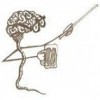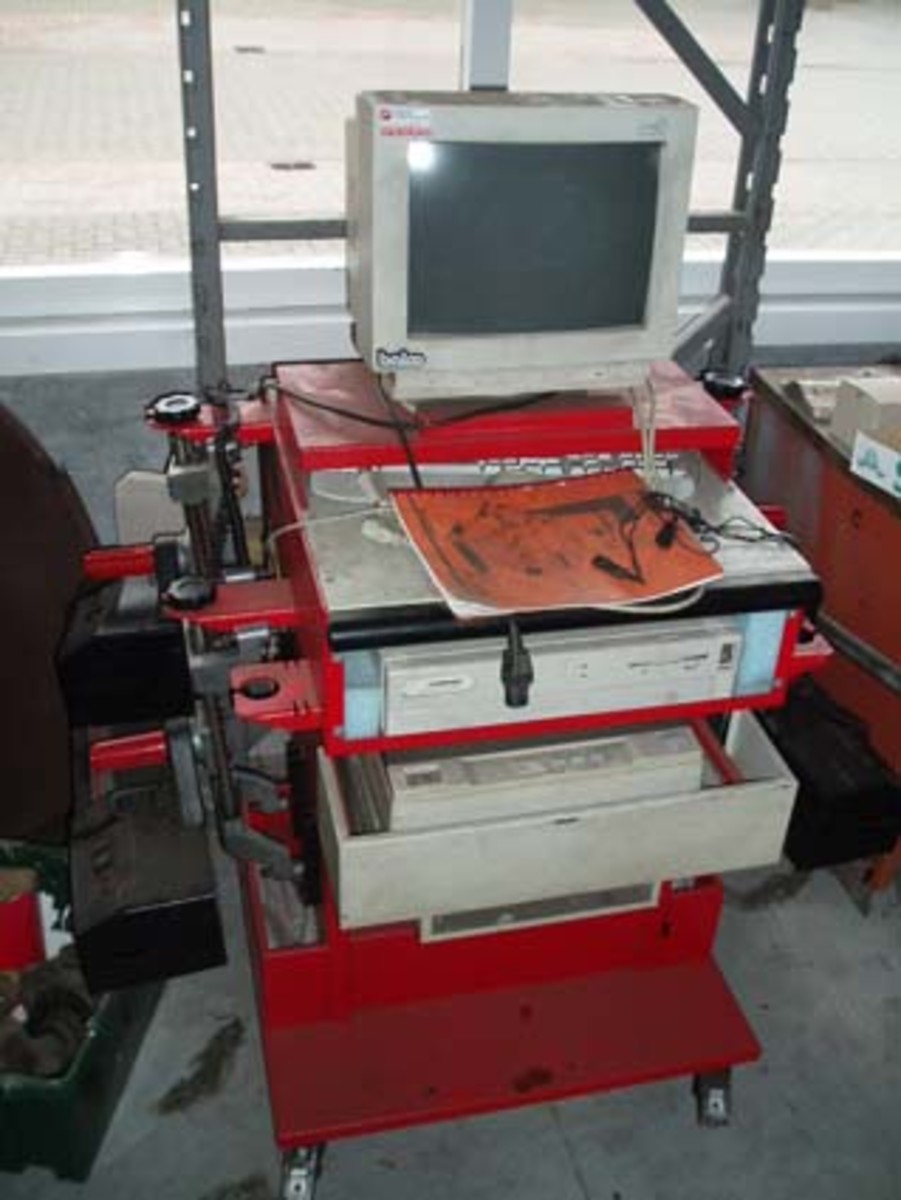Finding a Good Mechanic - part 2
The First Thing You Should Know
(If you missed the first part of this series, how to find an honest shop, you can see it HERE.)
When you drop off your car for automotive repair, normally the person you will be speaking with is a service writer and not the mechanic that is going to be working on your vehicle. This is not always true in the case of very small, independent shops, but normally it is. A service writer (or service advisor) is a salesman first and foremost no matter what anyone else wants to say. Their job is to communicate between the mechanic and the customer, and to do so with the utmost attention to the repair shop's bottom line.
Now, there is nothing wrong with that. Without profit, the shop cannot stay open nor can it provide people with a job. The reason I am pointing this out to you, however, is to make certain that you understand the nature of what is going on. For many, this awareness of profit seeking, even carnivorous profit seeking at times, is the dread and fear that they take with them when they go in; for the rest, it's just the hard fact of reality. However, being aware of profit, and the desire of it by an auto shop, doesn't have to leave you powerless or in fear.
Dropping Off Your Car
When you arrive at a shop, the odds are you didn't do it because you had nothing else to do. Something brought you there. It might have been a weird noise or a light that came on the dash. Maybe it's just time for your next oil change. Regardless of why you're there, there was a reason that brought you in.
When you get to the shop, stay focused on why you are there. A "good" service writer (salesman) is going to write up what you came in for and then, sight unseen, ask if you have had such-and-such service done lately. He might say, "I notice you have 60,000 miles on your car; have you had your transmission oil changed?" or maybe "I saw some tire wear when I was getting the mileage, when was the last time you had your alignment checked?"
Ok, there's nothing wrong with this, but, if you start allowing them to ring you up for other services before you've had what you came in for done, you may find that your bill ends up astronomically high - especially if you are in for some kind of diagnostic work, like uncovering that noise or determining why that light came on.
A better strategy than agreeing to this extra stuff up front is to smile and say, "Thanks, but for now let's just stick to what I came in for. If there's anything that your mechanic notices, please have them make a note of it and I'll consider it at that time."
What this does, besides keeping you from locking down a huge bill later on, is lets the service writer know that you are the one in charge. Establishing a sense of your own consumer strength will only help you in the end. It says, "I'm not easy pickings." The service writer will be forced to respect you for that.
What to Do When They Finally Call
Okay, so let's assume they found the problem, or a new problem once your scheduled maintenance is done. What then? How can you tell if what they say is true? Well, here's the secret that will help you navigate that kind of rough terrain: Make them clarify the nature of your "need."
There is a huge difference between something that is broken and no longer functioning and something that just looks like it has some signs of wear. When your automotive shop calls you up and says something like, "Hey, you need a new water pump," ask them to be clearer, ask them to explain specifically what they mean.
You don't have to know anything about mechanics to understand how language works. A mechanic should not tell you that you need something if it does not fall under specific guidelines for functionality (this can have to do with measurements, tolerances, chemical compositions and any number of industry or manufacturer defined criterion). Now, it is within the realm of normal "people speak" to say "you need such and such" the first time through. And while technically they never should say it if the part has not actually failed, in the real world many service writers do. So, make them tell you if your part is actually broken or that is no longer doing what it is designed to do. THAT is what need means, so ask the question pointedly: "So, Mr. Service Writer, do you mean that my water pump no longer works?"
At this point they will have to be more specific. What you may hear is, "Well, it's still working but we've spotted a leak around the seal," or maybe, "A part of it is moving more than it should." You'll be hearing something other than, "Yes, your part is broken and it no longer works." Those other things are worthy of your concern; they are warning signs of trouble, but it is not the same as need.
On the other hand, the service writer may end up saying, "Well, no, it's still working, but based on mileage [or some other reason like fluid color or the simple passing of time] we thought it might be time for you to have this extra work done." Normally, what that really means is that because your car has X-number of miles, the shop would like for you to write them a bigger check. In some cases, they may have looked in your vehicle's Owners Guide and found a particular reference for maintenance in there, but generally they do not. If you don't know if they did or didn't, ask them if they did. There's a big difference between, "Yes, this is service recommend in your owner's manual for this mileage" and "Well, this is what we usually recommend." You may decide to do the work anyway based on convenience, since you are already at the shop, but by making the service writer clarify his terminology, you take the power of that decision onto yourself. You are in control.
I can't promise that no service writer will ever be able to pull some flimflam on you, and some people can just outright lie, but in my twenty-plus years of experience, most service writers aren't really thieves. Some are, but most are just ordinary people working to pay their rent. The company tells them "sell more, sell more," and so that's what they try to do. And again, there's nothing wrong with that. My point is just that you, the consumer, can be the one deciding how much money that shop is going to make from you.
Some Parting Tips
The things above are meant to help you take control of your automotive service buying experience. But there are a few more things to keep in mind. The first is that you should trust your instincts. If a service writer seems pushy or aggressive, or if they seem to be rushing you along, listen to your inner voice. You didn't survive this long on planet Earth without developing some perspective on humanity. This is something that I used to harp on to my long time customers about. You're not stupid; don't let your repair shop treat you like you are.
Secondly, if you have a problem after getting automotive repair, give the shop you took it to a chance to make it right. For years I have worked with some of the most gifted and intelligent mechanics you could ever hope to find. And guess what, even those guys make mistakes. I've heard lots of analogies comparing mechanics to doctors, saying that what they do is in many ways the same: diagnose a problem and then recommend a repair. And that analogy is good, except for just one thing: unlike cars, the human body only has two models and neither one of them has changed in many thousand years. Doctors have at least one advantage there. For mechanics, there are hundreds of models and they change just about every year. So give your mechanic a break. If you find a good shop that feels trustworthy and they treat you with respect, give them the chance to take care of their own mistakes. Good shops always will, even if the trouble is complicated and takes a trip or two. I know can be a hassle, but sometimes that's just the way it goes. It's a shame to cast off a good mechanic just because of an unfortunate twist of fate.
In Conclusion
So now you know. When you take your car in, stick to what you came in for when you first get there. Later, once your main issue has been resolved, you can consider opting for other work. Make them explain why; and make them define what they mean when they say "you need" something and make them tell you why if they simply say that "this is what we recommend." Don't be afraid to ask, and insist that they use language that you can understand. By understanding that you are the customer and that you are in control, you take the stress out of going to the shop. I can tell you this much, once you do, you might discover that there are some really cool people working at your favorite repair shop.








